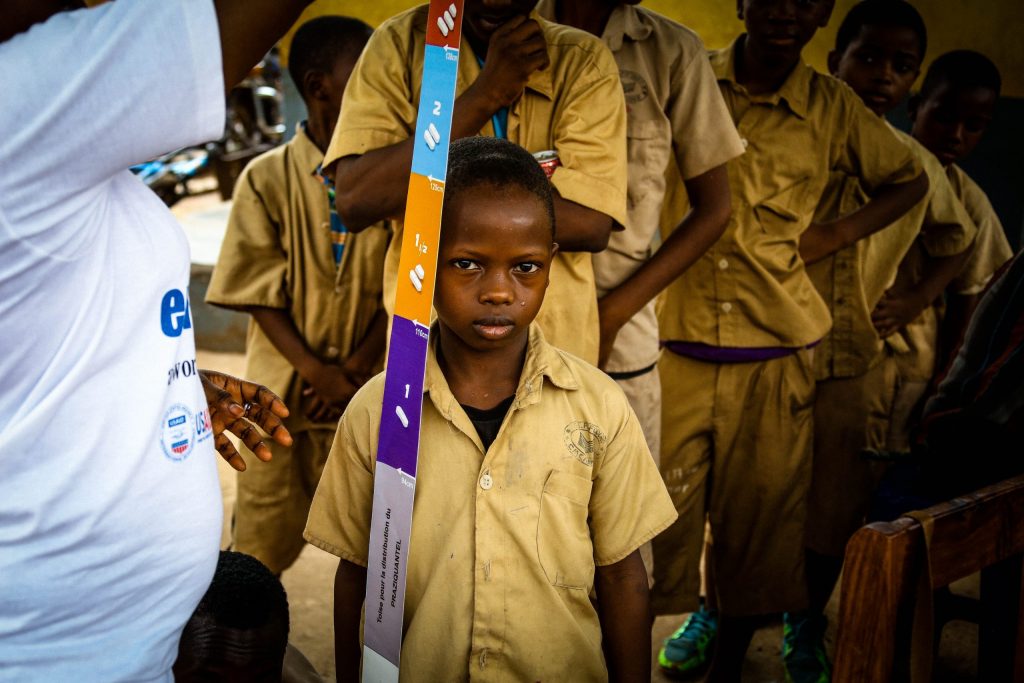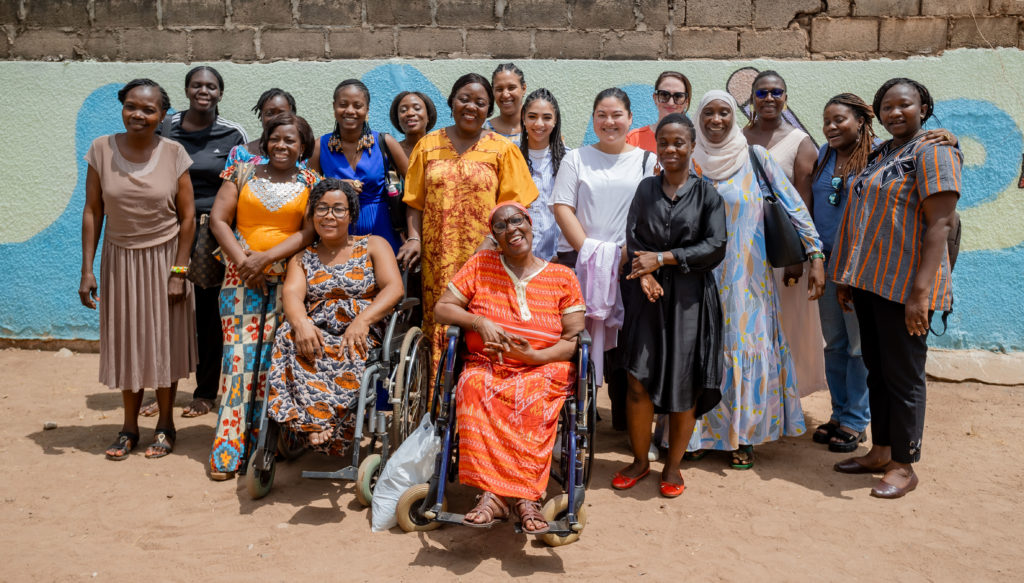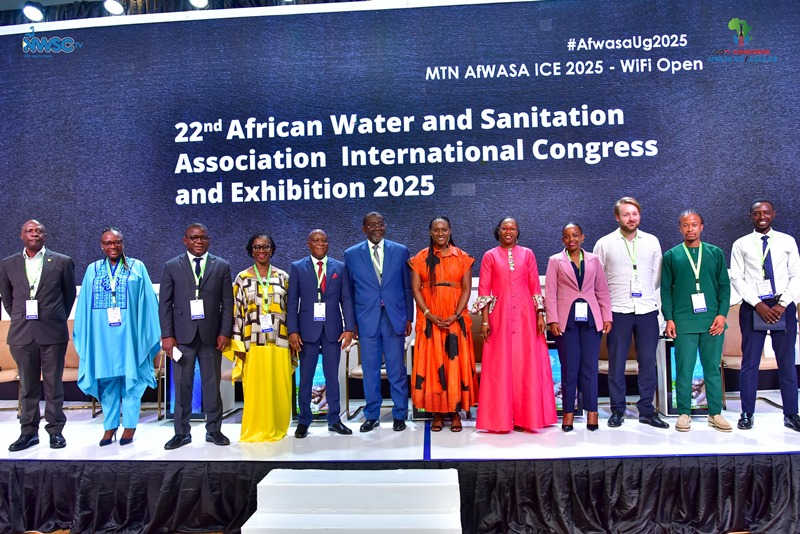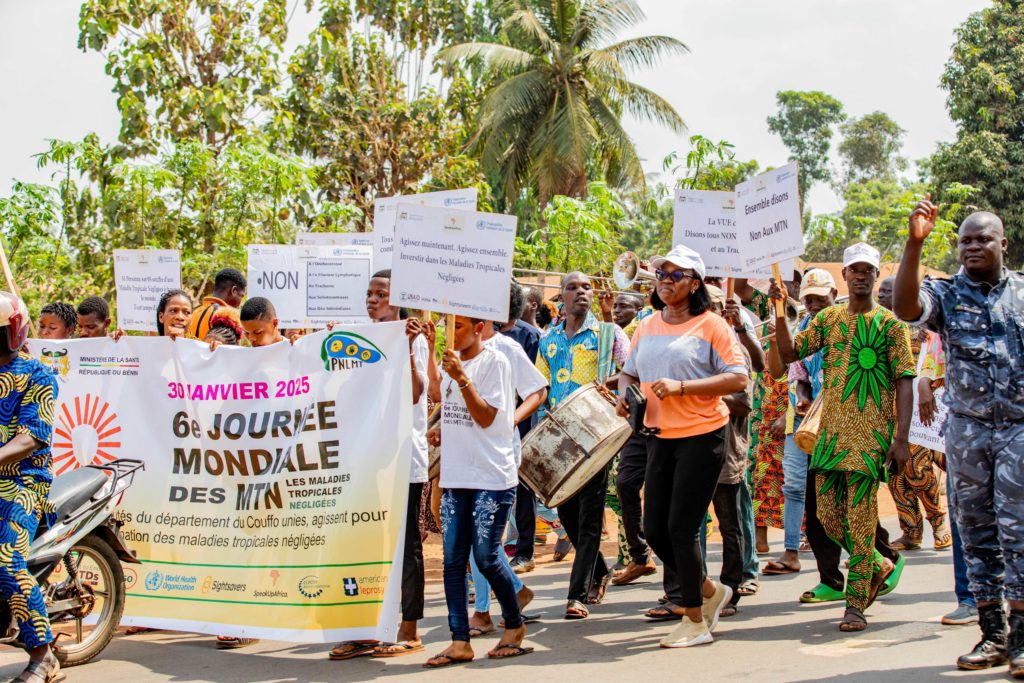Ending neglect to drive progress: How controlling neglected tropical diseases can curb COVID-19

By Dr Maria Rebollo Polo, ESPEN Team Leader, World Health Organization Regional Office for Africa
Every day stories are coming out about the devastation COVID-19 is causing around the world. The WHO’s recommendations of physical distancing and handwashing measures can drastically mitigate the spread of COVID. However certain regions face challenges in practicing these recommendations. In Sub Saharan Africa, more than a third of the population has no access to adequate handwashing facilities. Further, Covid-19 risks overshadowing and compounding communities that are already burdened by other diseases, such as neglected tropical diseases (NTDs).
NTDs are a group of communicable diseases that affect more than 1.5 billion people globally, more than a third (39%) of whom live in Africa. These dangerous and destructive diseases, such as trachoma, schistosomiasis and onchocerciasis, can be prevented and treated, yet they continue to cause severe disfigurement, blindness and other long-term disabilities that create obstacles to education, economic growth and overall development. If untreated NTDs cause up 200,000 deaths a year in Africa.
Both COVID-19 and NTDs can be prevented by taking the same preventative measures. Clean water, good hygiene and adequate sanitation are the foundations for fighting NTDs as much as they are with COVID-19. Yet despite water and sanitation being recognized as a human right since 2010, many continue to live without adequate access to them. Suffering from an NTD can weaken immune systems, making people more susceptible to both COVID-19 infection and complications from the virus. For the last few months, the importance of these steps in protecting COVID-19 have been emphasized repeatedly and on a global scale. Now it’s time to stress the importance in protecting communities from NTDs too, to ensure that NTDs are not overshadowed during this period.
At the World Health Organization Regional Office for Africa’s Expanded Special Project for elimination of Neglected Tropical Diseases (ESPEN) we have made it our mission to eliminate NTDs on the African continent. We understand that the poorest countries and communities are least equipped to cope with COVID-19 are also hit hardest by NTDs. An estimated 896 million people worldwide use health care facilities with no water service and 1.5 billion use facilities with no sanitation services[1]. Not only does this put the general population in these communities at risk, it puts health workers and those fighting on the frontline at risk too.
In the context of COVID-19, our latest guidance encourages local health authorities to use existing NTD platforms, surveillance mechanisms and WASH education opportunities to support the implementation of COVID-19-related measures, as appropriate. In Africa, 73% of the countries have reported to ESPEN that the first line NTD community health workers (CHW) are now supporting both NTD and COVID response. CHWs are participating in-risk communication and community engagement of COVID-19 and Promotion of hygiene measures, surveillance (screening, active case finding, contact tracing and follow up and suspect notifications), point of entry surveillance support, rumour management , infection Prevention and Control: Support in triage at health facilities, contributing tremendously to the fight against NTDs and COVID.
We have worked hard to ensure that NTD programmes have been implemented in many communities across the continent. Now it is crucial that they are maintained and programmes are adapted to encompass the current crisis. National and local leaders must not turn their focus away from NTDs towards COVID-19, but rather take a dual-approach. That’s why new initiatives such as the Stay Safe Africa campaign – which seeks to protect citizens from this new disease, while recognising African communities’ existing settings and challenges – are so important.
Over the next decade, the World Health Organization’s 2021 – 2030 NTD roadmap will guide the global response to NTDs and ensure that the UN’s sustainable development goals, of ending the epidemic and reducing the number of people requiring medical interventions by 90%, are met. This is still achievable, even amidst the COVID-19 pandemic. NTDs are diseases of poverty and inequity – by eliminating them we can drive development forwards and ensure that people are no longer plighted by preventable and treatable diseases.
There are currently 600 million people in Africa that require treatment for NTDs. More than ever, prioritising adequate hygiene and sanitation needs to be at the top of Africa’s agenda. This pandemic has demonstrated that governments can advocate for improved hygiene and good handwashing practices, and can therefore continue to do so for other diseases. NTD programmes have reached over a billion people for the last four years and as treatment campaigns resume emphasizing hygiene and social distancing will be critical while ensuring access to these medicines. We have the tools, data and knowledge to make this a reality. I strongly believe that continued action against NTDs will help us in our battle to stop the spread of COVID-19 and ensure the diseases of the poorest are not left behind.
[1] https://data.unicef.org/wp-content/uploads/2019/04/WHO-JMP-WASH-in-health-care-facilities-launch.pdf


